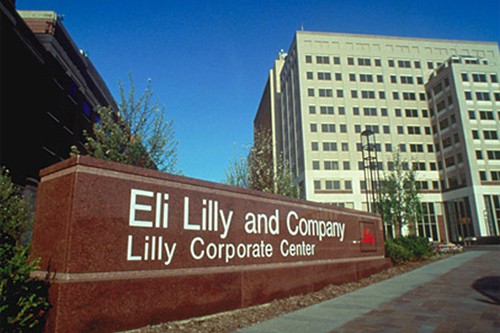
Two phase III trials of Eli Lilly’s amyloid-targeting antibody solanezumab failed to show a significant benefit in patients with Alzheimer’s disease, following in the footsteps of rival drug bapineuzumab from Pfizer.
There was some comfort to be drawn from the data, however, as Lilly reported that a “statistically significant slowing of cognitive decline” was seen when the studies were pooled, with the benefit accounted for by a subgroup of patients with mild symptoms of the disease.
Like Pfizer’s bapineuzumab, solanezumab did not meet cognitive and functional endpoints in the 18-month EXPEDITION 1 and 2 phase III trials but – in light of the cognitive decline data – Lilly said it now intends to discuss the results with regulatory authorities.
The finding lends some credence to the notion that solanezumab and bapineuzumab were given too late in the disease development process, and earlier intervention with amyloid-targeting therapies could still be of benefit.
It also provides some much-needed support for the amyloid hypothesis of Alzheimer’s, which holds that the amyloid plaques seen in the brains of patients with the disease are a key factor in the neurodegenerative process and breaking them down – or more likely blocking their formation – can interrupt disease progression.
“We believe the pooled data support the amyloid hypothesis, as these are the first phase III data with an anti-beta amyloid agent that appear to show a slowing of cognitive decline,” commented Jan Lundberg, president of Lilly Research Laboratories.
While the future of the programme is decided Lilly is pressing ahead with an open-label extension of the studies, called EXPEDITION-EXT, which will allow the company to collate data on longer-term use of the drug.
If Lilly gets a favourable response from regulators and opts to continue development of solanezumab it represents a surprise upside for the company, given that pharma observers had given the drug only a slim chance of success.
The lack of disease-modifying therapies for Alzheimer’s means any medicine that secured approval in this setting would likely become a blockbuster, although analysts still believe the chances of solanezumab reaching the market are low.
Approval may also require additional clinical studies, and observers note that Lilly may baulk at paying the hefty price tag for another large-scale study of the drug, while not ruling out the possibility of filing even with the current dataset.




